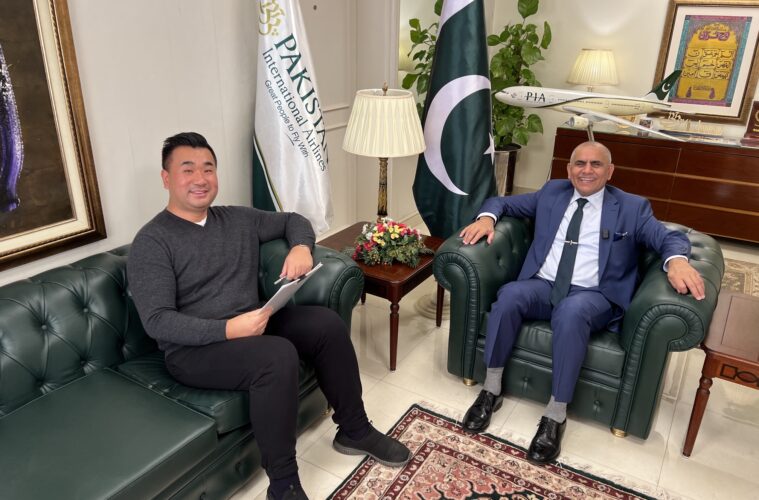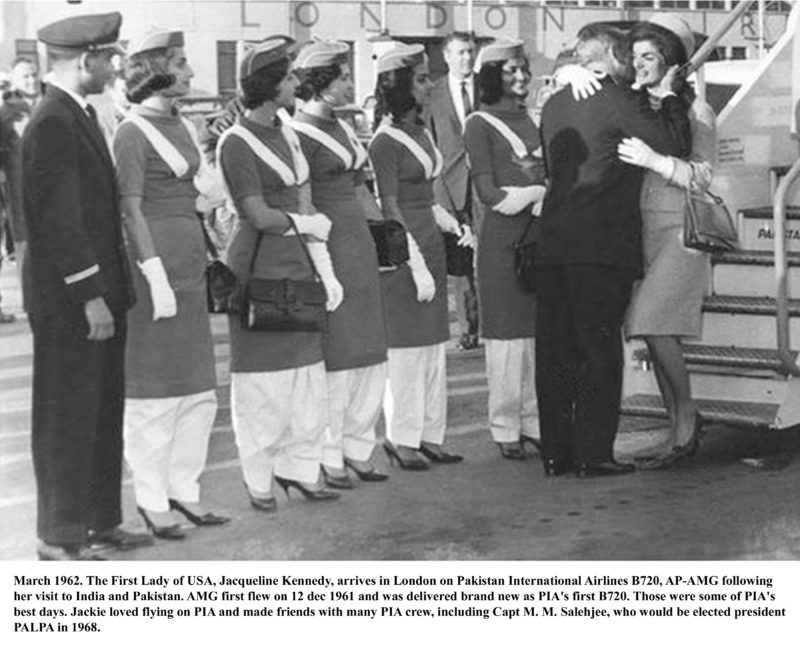On my recent trip to Pakistan, I met up with PIA CEO Air Marshal Arshad Malik, he spoke openly about all the PIA issues and how he is going to fix the airline.
We discussed issues about the EU blacklist, the credibility of the pilots and return PIA to profitability.
Later, I spoke about PIA's fleet strategy and consolidation of European operations with PIA Chief Commercial Officer Ali Qasim
Video
Below is an extract of the interview from PIA CEO Air Marshal Arshad Malik:
PIA has a glorious past.
Unfortunately, the political intervention happening in this organization for about two decades. So over a period of time, there were people who were getting stronger rather than the organization. The people started to merge together in associations and in unions, and they were trying to manipulate and they were trying to control the organizations.
Over a period of time because of these interventions, we had lost merit-oriented decisions. We were also not taking commercial-based decisions. We were being dictated upon. Once all these things were going on, naturally, your performance indicators started to go down.
PIA CEO Air Marshal Arshad Malik
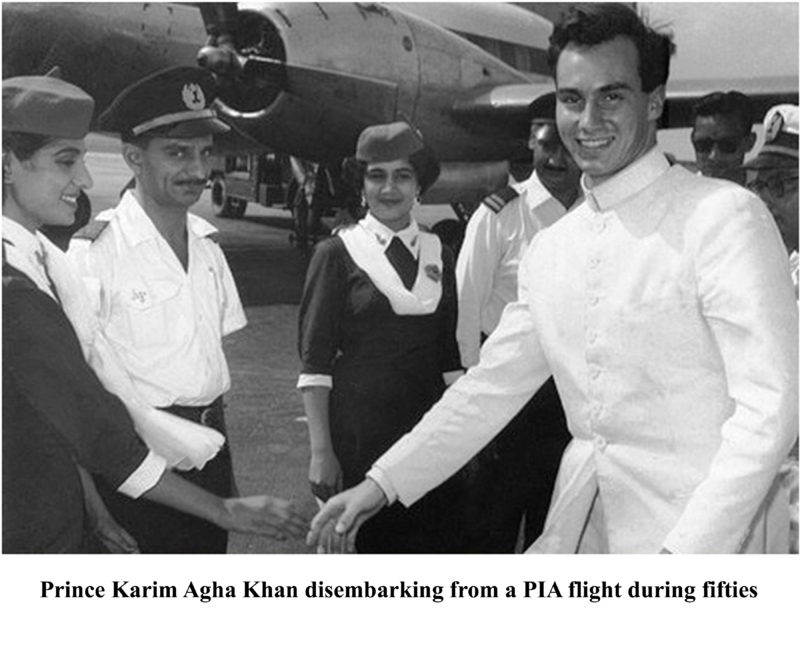
2019 was my first year. Despite all these challenges, we managed to organize ourselves, orientated ourselves, also groom ourselves into commercial aviation. God was very kind, through the assistance of my team, we were able to produce good results. And this was probably after very long, maybe 10 or 12 years that we came into operating profit.
COVID and Pilot "Fake" License Challenge
Very soon the next challenge came; COVID. That was a time where the aviation and hospitality industries were the worst industries.
As we are passing through COVID, but then yet another challenge came whereby observations came onto our regulatory authority, which was the Civil Aviation Authority of Pakistan. The observation was that the licenses that were being issued, were suspected. Now, I think this was the worst challenge, which I had to face because my European routes were blocked. My Interline and codeshare agreements were at stake.
So what I did, I told myself we have to manage it. We have to come out of this crisis and face it with reality. I grounded all those pilots who were being suspected. I formed a central cell under my direct supervision, and we challenged those names and those data.
We were able to prove that it is not all PIA pilots or the majority of PIA pilots who had the suspicious license. It was only a handful of people. And then I also proved that it is not PIA that is at fault. It is the regulatory authority whose matters have to be resolved and have to be brought up to better standards.
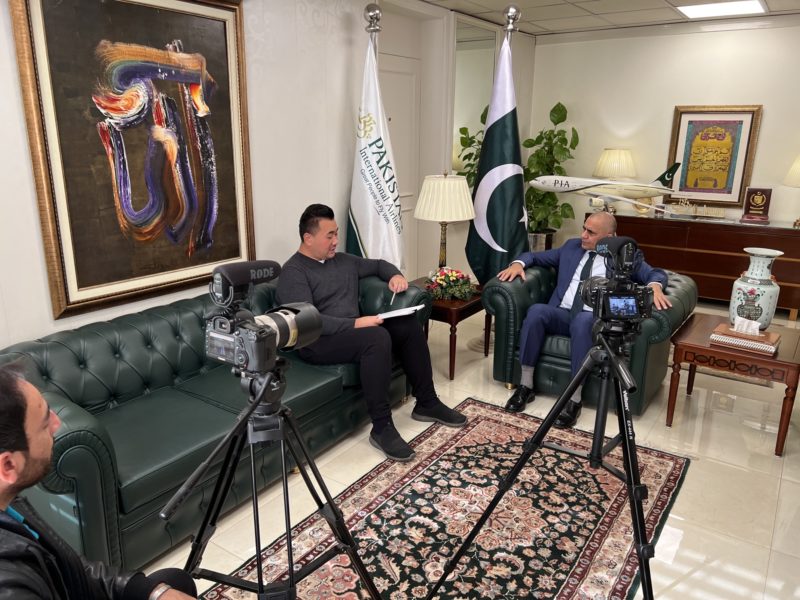
Back to Europe?
Well, as I said that we sorted out our in-house affairs and brought the safety and quality team under my control, I got an Air Vice Marshall to look after the safety aspect. We presented ourselves to Pakistan Civil Aviation, and thereafter, the international auditors came, which was called IOSA Audit.
We were very fortunate that through the hard work of my team, we were able to clear and cross that hurdle. IOSA cleared us with outstanding remarks. You'll be glad to know that very recently the ICAO Audit has also been conducted. Although formal information has not been shared with us, but we are very, very positive. I think by next year's first quarter, we should be able to fly out our wings to Europe, and the ban should be lifted.
Future Fleet Strategy
Our aim is that we should have standardization of the fleet because that reduces the cost. At the moment, we have about 10 A320s and we plan to induct 6 more A320 in 2022, and then every year about 5-7 more A320s will be inducted. For the B777 widebody fleet, those which are not owned by us will be phased out by 2024. And from 2025 onward, we'll be introducing state-of-the-art wide-body airplanes such as either A330/A350 or B777/B787. We will evaluate and ensure that the fleet will be of two types, one narrow body and one wide-body for economies of scale.
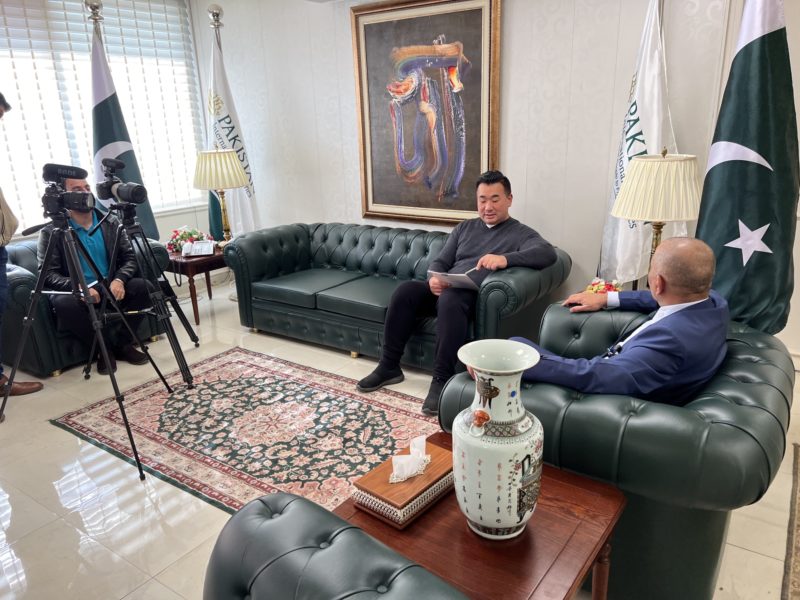
Cost Cutting and Route Rationalization
We have learned to be very nimble with the cost, because as you understand, in the aviation industry, the yields have always been a challenge. The aviation industry is one of the industry where the yields have been dropping persistently and the cost has been increasing.
So we have gone into a very stringent route diagnostic labs, where we diagnosed each and every route and decided to consolidate our network rather than expanding on the route where we either used to have one flight or two flights a week.
For example, in Europe, we used to have a mushroom of destinations whereby a single destination was not able to cater to the operation of a wide-body aircraft, for example, Oslo and Copenhagen, which are not very big markets for us. So we need to combine Oslo and Copenhagen. Similarly, in Barcelona and Milan, we need to combine them together. There's an aircraft cycle cost involved and a wide-body cycle cost is enormous when you combine these destinations and sectors. So all the profitability of the route goes off.
What we have done now is to choose one single point in Europe, which is not only from the commercial point of view but geographically, the center of Europe, having a very convenient connection to the rest of Europe. That would be probably Paris because the yields of that Paris market are better than the other. European destinations. There's a large Pakistani community over there too.
From Paris, we will be having the codeshares, SPA, and commercial partnership with other airlines whereby we'd be providing passengers easy connectivity to the rest of Europe.


